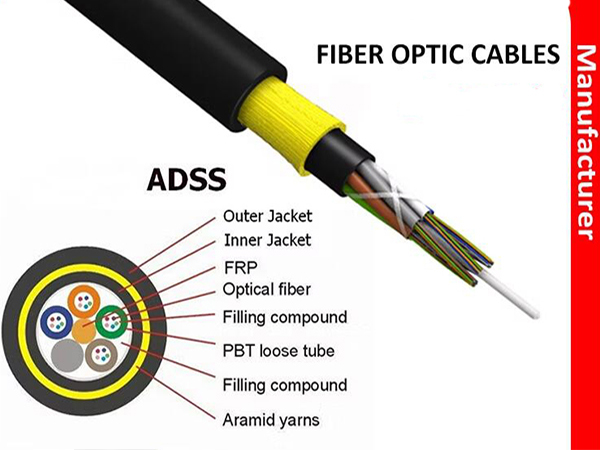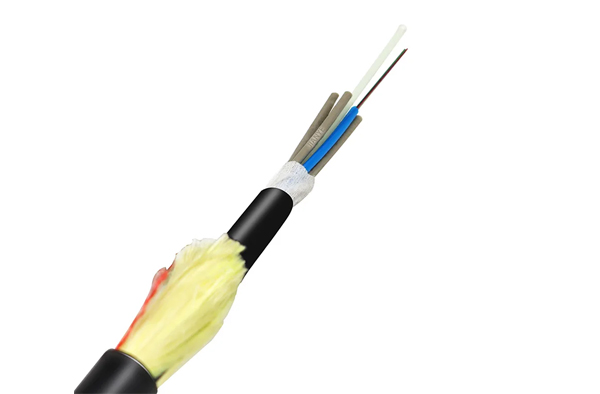In the rapidly evolving world of telecommunications and power transmission,
ADSS (All-Dielectric Self-Supporting) Cable has emerged as a game-changer for overhead installations. Among its variants, the
12 core ADSS cable stands out as a versatile and reliable solution for high-capacity data transmission. In this article, GL FIBER explores the features, applications, and benefits of this cutting-edge cable.

What is 12-Core ADSS Cable?
ADSS cable is a type of optical fiber cable designed for aerial deployment without the need for a separate messenger wire. The "12-core" designation refers to its 12 optical fibers, which are housed within a robust, dielectric (non-metallic) structure. This design ensures immunity to electromagnetic interference (EMI), making it ideal for installation near high-voltage power lines.
Key Features:
Self-Supporting Design: The cable’s reinforced construction allows it to span long distances (up to 1,000 meters) between utility poles or towers without external support.
Lightweight & Durable: Made from high-strength materials like aramid yarn and weather-resistant polyethylene, it withstands harsh environmental conditions, including UV exposure, wind, and ice.
High Bandwidth Capacity: With 12 optical fibers, the cable supports high-speed data transfer for telecom networks, smart grids, and broadband services.
Safety: Its all-dielectric composition eliminates electrical conductivity, reducing risks during installation near live power lines.
Applications:
Power Utilities: Deployed alongside transmission lines for grid communication and monitoring.
Telecom Networks: Used by ISPs to expand rural or urban broadband coverage.
Railways & Transportation: Supports signaling and communication systems.
Smart Cities: Facilitates IoT connectivity and real-time data exchange.
Advantages Over Traditional Cables:
Unlike metallic cables, the 12-core ADSS cable requires no grounding or lightning protection, cutting installation costs and time. Its lightweight nature also reduces structural load on poles, minimizing long-term maintenance.
Technical Specifications:
Fiber Type: Single-mode (OS2) or multimode (OM1-OM5).
Tensile Strength: ≥ 20 kN.
Operating Temperature: -40°C to +70°C.
Crush Resistance: Complies with IEC 60794-1-2-E3.
Installation Best Practices
Ensure proper sagging to avoid excessive tension.
Maintain a minimum bending radius (typically 20x cable diameter).
Use specialized hardware (e.g., suspension clamps) for secure mounting.

Conclusion
The
12-core ADSS cable combines flexibility, durability, and high performance, making it a cost-effective choice for modern overhead networks. Whether upgrading existing infrastructure or deploying new systems, this cable delivers seamless connectivity for power and telecom sectors.
Contact us today to learn more about our
ADSS cable solutions or request a customized quote for your project!


